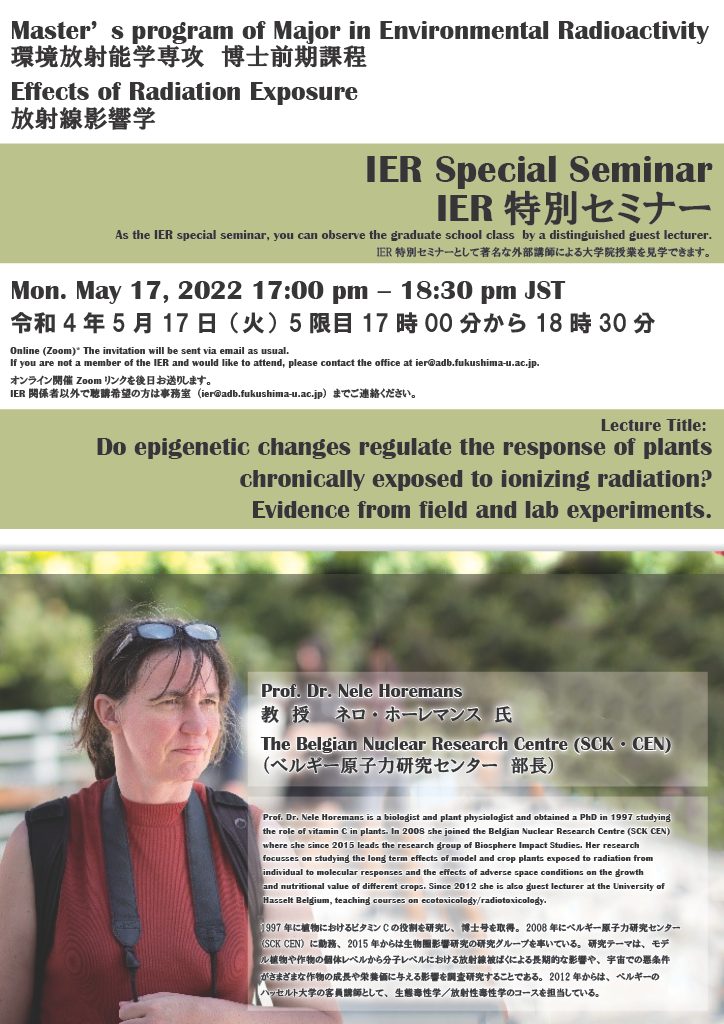May 17, 2022 We held an IER Special Seminar online.<Dr. Horemans>
Date & Time
Tue. May 17, 2022, 17:00 pm ‒ 18:30 pm JST
Venue
Online (Zoom)
Guest Lecturer:
Prof. Dr. Nele Horemans, Belgian Nuclear Research Centre (SCK-CEN)
Lecture Title
Do epigenetic changes regulate the response of plants chronically exposed to ionizing radiation? Evidence from field and lab experiments

The IER invites distinguished external researchers as guest lecturers to teach some of the classes in the Master’s Program of Major in Environmental Radioactivity, Graduate School of Symbiotic Systems Science and Technology and offers these classes as “special seminars” to other faculty members and students at Fukushima University.
On May 17, the online lecture on the subject “Effects of Radiation Exposure” by Prof. Nele Horemans was attended by five IER graduate school master students and four IER members. Prof. Horemans explained the modern view on the role of epigenetic* mechanisms in the regulation of gene transcription and formation of the features specific to various developmental stages of the living organisms. In particular, the lecture focused on the results of the field and lab experiments aimed at revealing changes in DNA methylation and micro-RNA expression levels in plants exposed to chronic radiation. In the Q&A session after the lecture, the lecturer and audiences discussed the mechanisms by which radiation changes methylation levels and micro-RNA activity, how parental irradiation can change methylation levels in unexposed offspring, potential links between epigenetic changes and non-targeted effects (e.g., bystander effect), regulation of methylation levels in individual embryonic cells leading to their differentiation, and contribution of 90Sr and other radionuclides to exposures to plants in the Chornobyl zone.
Epigenetics*
Epigenetics is the study of heritable changes in gene function without alteration of the DNA sequence. Such changes can occur in different life stages of organisms, as well as in adaptation to external factors such as environment and stress.
